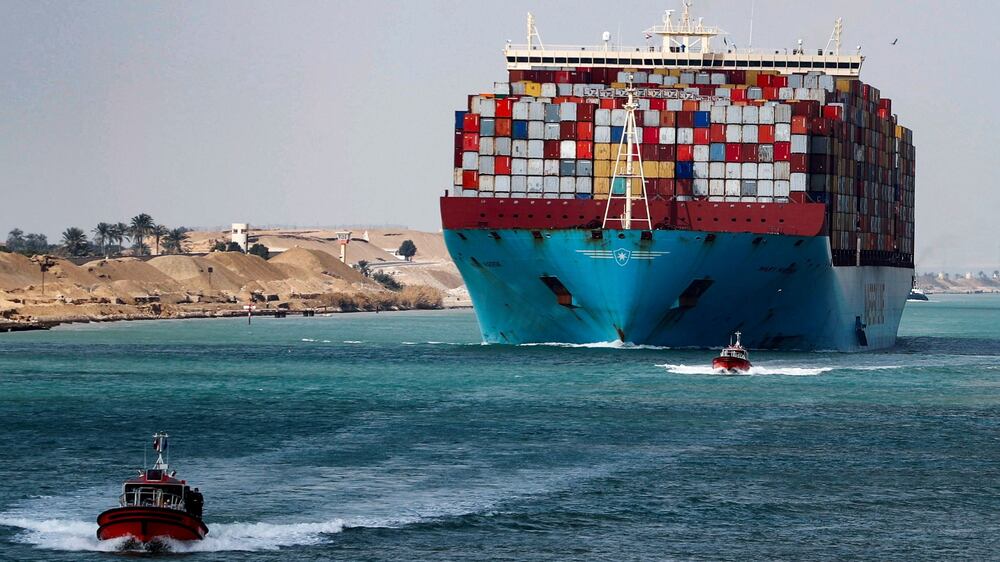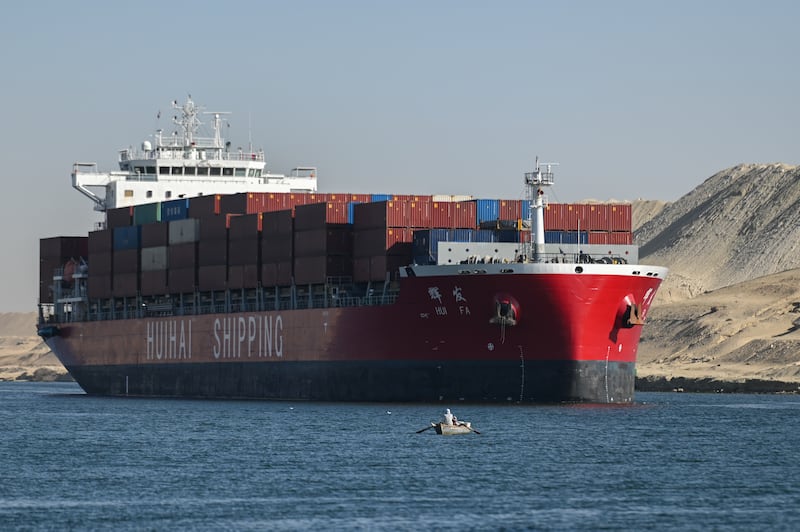Weekly shipping transits through the Suez Canal, a vital trade link between Europe and Asia, plunged by 42 per cent in the last two months, as Yemen's Houthi rebels continued to attack vessels passing through the Red Sea, a report has shown.
The UN agency for the interests of developing countries in world trade, Unctad, carried out a study as major players in the shipping industry suspended or withdrew Suez transits.
“The crisis in the Red Sea, marked by Houthi-led attacks disrupting shipping routes, has added another layer of complexity,” Unctad said on Friday, as it also highlighted upheaval in the Black Sea due to war between Russia and Ukraine and the impact of climate change on the Panama Canal as water levels recede.
The Suez Canal in Egypt is an artery for international trade, with about 12 per cent of the world's shipping traffic passing through it.
Many shipping companies have rerouted their vessels away from the Suez, amid Houthi the attacks, and are sailing through the Cape of Good Hope on the southern tip of Africa.
The diversion increases sailing time and raises costs for the transportation of goods.
Container ship transits per week have plummeted by 67 per cent compared to a year ago, with container carrying capacity, tanker transits and gas carriers “experiencing significant declines,” the report said.
Earlier this month, Qatar temporarily paused some liquefied natural gas shipments through the Red Sea but later resumed sailing through that route, according to live updates from the Marine Traffic ship tracker. However, LNG deliveries may be delayed due to disruption in the Red Sea, according to state-owned Qatar Energy.
The UN trade body expressed “profound concerns” as global trade continues to be disrupted elsewhere, including in the Black Sea and Panama Canal.
“The recent attacks on Red Sea shipping, coupled with existing geopolitical and climate-related challenges, have given rise to a complex crisis affecting key global trade routes,” Unctad said while underscoring the critical role played by maritime transport in the international trade, which is responsible for over 80 per cent of the global movement of goods.
Container freight rates are surging amid the crisis, with the average container spot freight rates during the last week of December, rising by more than $500 in one week, which “was the highest ever weekly increase,” it said.
Average container shipping spot rates from Shanghai last week are up by 122 per cent compared to early December, while the rates from Shanghai to Europe went up by 256 per cent, according to the report.
Rates to the US West Coast also increased.
“The cumulative effect of these disruptions translates into extended cargo travel distances, escalating trade costs and a surge in greenhouse gas emissions from shipping having to travel greater distances and at greater speed,” the report said.
Interruptions extending for a longer time, particularly in container shipping, pose a direct threat to global supply chains, which could delay the delivery of goods and increase costs.
Egypt is widening the Suez canal

However, consumers are not expected to feel the impact of higher freight rates immediately and it “could manifest within a year”, the UN agency said.
Oil prices are also continuing to rise, with both the global benchmarks including Brent and WTI posting their biggest weekly gain since October on supply concerns amid the Middle East tensions.
“The crisis is also reverberating in global food prices, with longer distances and higher freight rates potentially cascading into increased costs. Disruptions in grain shipments from Europe, Russia and Ukraine pose risks to global food security, affecting consumers and lowering prices paid to producers.”







